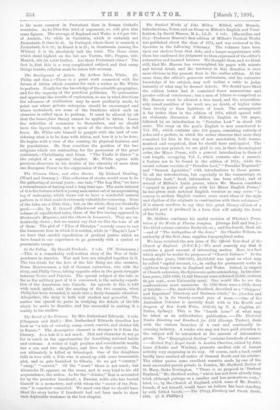The Secret of the Princess. By Mrs. Sutherland Edwards. 2
vols. (Chapman and Hall.)—Mrs, Sutherland Edwards describes her book as " a tale of country, camp, court, convict, and cloister life in Russia." The descriptive element is stronger in it than the literary. As a tale it is not much. Plot and character do not go for so much as the opportunities for describing national habits and customs. A widow of high position and considerable wealth has a son and two daughters, and lives in the country. The son ultimately is killed at Sebastopol. One of the daughters falls in love with a Pole who le mixed up with some treasonable plot, and so gets banished to Siberia. So we get "country," "camp," "convict." Of the "court" there is not much; but Alexander II. appears on the scene, and is very kind to his old acquaintance, the widow. As for the "cloister," that is accounted for by the preacher Innokenti, a Russian noble who has buried himself in a monastery, and with whom the " secret of the Prin- cess " is somehow connected. Wo must own that we should have liked the story better if Innokenti had not been made to show such deplorable weakness in the last chapter.






































 Previous page
Previous page